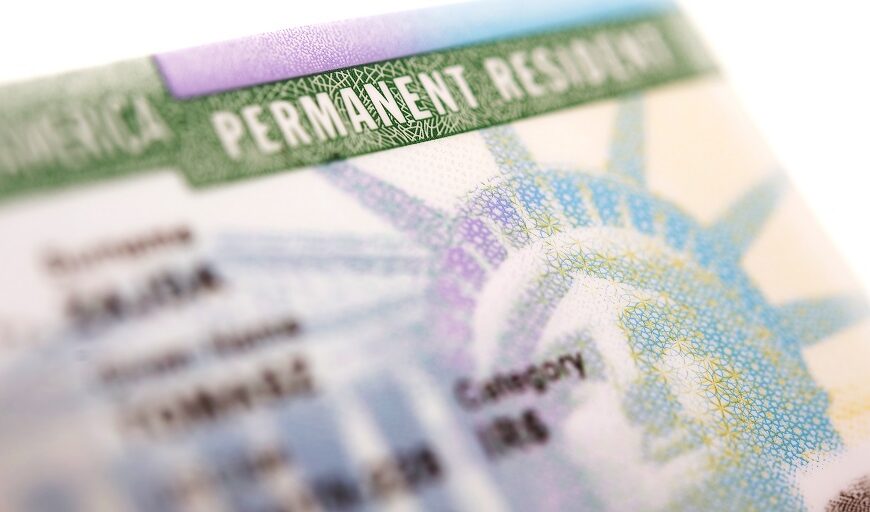Navigating False Information in Immigration: Strategies and Solutions
In the often complex and confusing realm of immigration, the presence of false, misleading, or withheld information can significantly impact individuals and families seeking to relocate. This issue extends beyond mere misunderstandings; it can lead to severe consequences for those trying to navigate the immigration process. Understanding how to deal with such misinformation is crucial for a successful immigration journey.
Understanding the Impact of Misinformation
The ramifications of false information in immigration are profound. It can lead to:
- Delays in processing: Incorrect information can result in lengthy delays, causing frustration and anxiety for applicants.
- Rejection of applications: Providing misleading or incomplete information may lead to application denials.
- Legal consequences: In some cases, applicants may face legal repercussions for providing false information.
- Emotional distress: The stress and uncertainty associated with misinformation can take a significant toll on individuals and their families.
Identifying Misinformation
Recognizing false or misleading information is the first step in addressing it effectively. Here are some common sources of misinformation:
- Unverified online sources: Many websites and forums offer advice that may not be accurate or up to date.
- Word of mouth: Friends or family may share their experiences, which can vary greatly from the standard procedures.
- Unqualified advisors: Some individuals may pose as immigration consultants without the necessary qualifications or expertise.
Strategies for Dealing with Misinformation
Once misinformation is identified, having a solid strategy in place to address it is essential. Here are some effective methods:
1. Seek Professional Guidance
Engaging a qualified immigration consultant or lawyer can provide clarity and accurate information tailored to your specific situation. Professionals can help you understand the complexities of immigration law and guide you through the necessary processes.
2. Verify Information
Always cross-check information from multiple reliable sources. Official government websites, reputable legal organizations, and accredited immigration services should be your primary sources of information.
- Check official guidelines: Most immigration authorities provide detailed information about the application process and requirements.
- Use government resources: Websites like the U.S. Citizenship and Immigration Services (USCIS) or similar entities in other countries offer up-to-date information.
3. Educate Yourself
Knowledge is power. Familiarizing yourself with the immigration process can help you identify misinformation more easily. Consider taking courses or attending workshops focused on immigration law and procedures.
4. Document Everything
Keeping thorough records of your immigration journey is crucial. Documenting your communications, applications, and any advice received can help identify discrepancies and provide evidence if disputes arise.
5. Report Fraudulent Activity
If you encounter a situation where false information is being disseminated, reporting it to the appropriate authorities can help protect others. This may include notifying immigration services or consumer protection agencies.
Addressing Withheld Information
In addition to false information, withheld information can also pose challenges. This typically refers to instances where applicants fail to disclose critical information, often out of fear or misunderstanding.
1. Understand Disclosure Requirements
It’s vital to know what information is required by immigration authorities. Failure to disclose required information can lead to serious consequences, including application denial or deportation.
2. Be Transparent in Your Application
When filling out immigration applications, honesty is the best policy. Disclose all relevant information, even if it seems unfavorable. Immigration officials are often more understanding of mistakes made in good faith than intentional omissions.
3. Seek Guidance on Sensitive Issues
If you are unsure about disclosing certain information—such as previous legal issues, health conditions, or financial matters—seek professional advice. An immigration consultant can help you navigate these sensitive areas without jeopardizing your application.
Building a Support Network
Having a supportive network can make a significant difference in your immigration journey. Surround yourself with individuals who have successfully navigated the process or who are knowledgeable about immigration issues.
- Join community groups: Many communities have organizations that provide support and resources for immigrants.
- Connect with online forums: Engaging with others online can provide additional insights and shared experiences.
- Attend local workshops: Many organizations offer workshops on immigration processes, which can be beneficial.
Conclusion
Navigating immigration can be a daunting task, especially in the face of false or misleading information. By understanding the impact of misinformation, employing effective strategies, and building a support network, individuals can better position themselves for success. Remember that seeking help from qualified professionals and staying informed through reliable sources are your best defenses against the challenges posed by misinformation. Your journey towards a new life in a different country deserves clarity, honesty, and support.






